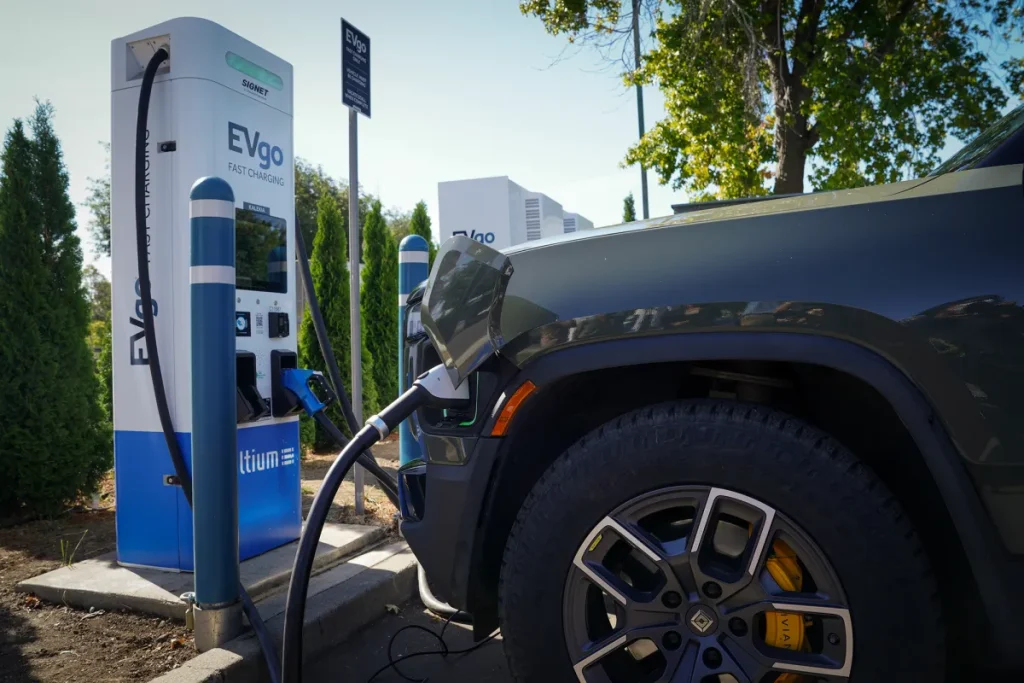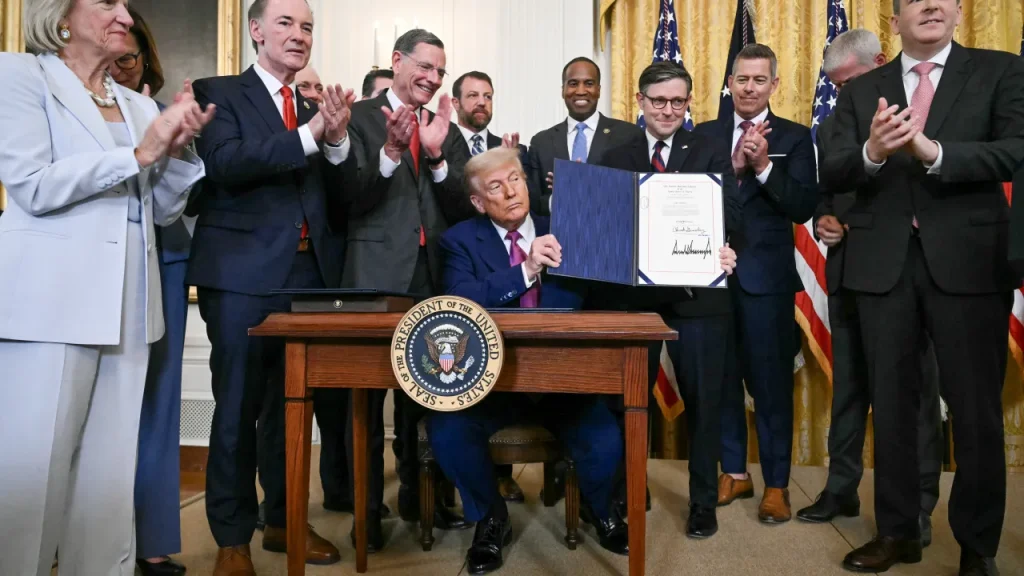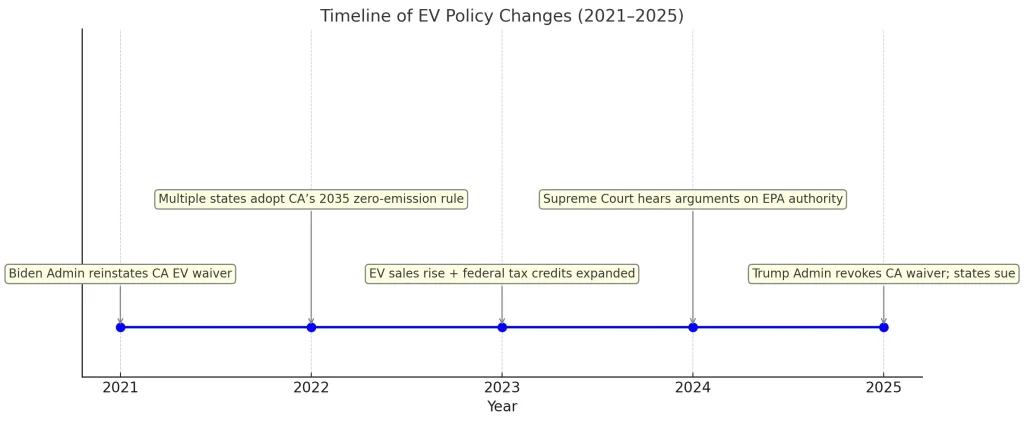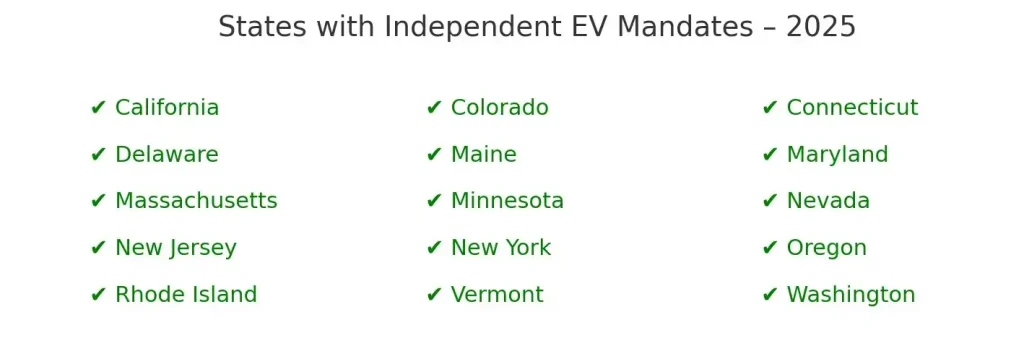
What Happened?
On June 12, 2025, former President Donald Trump signed a resolution revoking California’s ability to enforce its own electric vehicle (EV) sales mandates. These mandates previously allowed the state to push for 100% zero-emission new car sales by 2035 — a model that influenced policies in over a dozen other states.

The move comes under the Congressional Review Act, a tool that lets the federal government undo rules created by previous administrations. In this case, it targets environmental standards set under President Biden.

Why States Are Fighting Back
California, joined by 10 other states including New York, Colorado, and Washington, has filed a lawsuit against the rollback. The states argue that:
- They have legal rights under the Clean Air Act to set tougher emission standards.
- Revoking their power slows progress on reducing air pollution and transitioning to cleaner transportation.
- Millions of Americans support EV-friendly policies, especially in urban areas affected by poor air quality.
Colorado’s governor called the move “short-sighted and damaging to innovation.“
Why This Matters for Drivers and Automakers
This federal reversal could reshape how EVs are sold and incentivized across the country. Here’s how:
For Drivers:
- Fewer EV options in some states if automakers adjust strategies.
- Possible reduction in EV rebates tied to state emission goals.
- Slower rollout of charging infrastructure in states without strong mandates.
For Automakers:
- More uncertainty in long-term planning, especially for U.S. production.
- Potential delay in launching low-cost EVs, aimed at compliance with state targets.
- Pressure from global markets like Europe and China, which continue tightening EV rules.
The Bigger Picture
This legal battle isn’t just about California — it’s about who controls the future of American clean transportation. With EV sales steadily growing and climate goals on the line, the outcome could influence:

- National EV adoption rates
- Investment in clean energy and battery tech
- The pace of innovation from U.S. automakers
Data Note:
According to recent data, over 30% of U.S. car sales were influenced by states following California’s clean car program. That influence may now be at risk if the courts uphold the rollback.
Final Thoughts
While the legal fight unfolds, the real impact will be felt by drivers, carmakers, and communities trying to shift toward cleaner roads. Whether states keep their independence or the federal government takes over EV regulation will shape how—and how fast—the U.S. moves toward an electric future.
